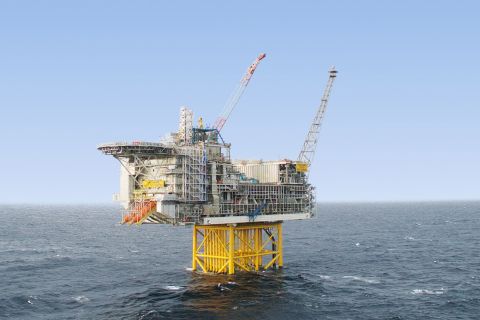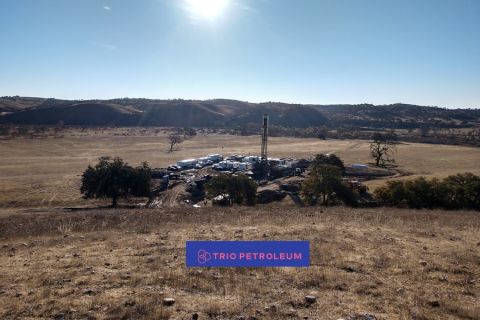Learn more about Hart Energy Conferences
Get our latest conference schedules, updates and insights straight to your inbox.
U.S. President Joe Biden’s ability to strike deals with his Venezuelan counterpart, Nicolas Maduro, is much easier now that the Republicans have all but assured Florida is red after the November midterms.
A key issue in the push for blue versus red state in Florida was whether or not negotiations with Venezuela would continue, with the Republicans against it. Losing swing state Florida opens the door for the Biden administration to cut deals with a socialist government that it despises but seemingly won’t go away, since it’s likely the Democrats figure they can’t lose what they’ve already lost.
The resumption of negotiations in Mexico between Venezuela’s ruling party and the opposition is the logical starting point to achieve the U.S.’ highly sought after “free and fair” presidential elections in Venezuela in 2024. Such elections are seen as the only true and democratic way for Venezuelan citizens to choose their next president and the direction they want their country to move. In effect, Maduro has made his initial chess move by agreeing to restart negotiations in Mexico City.
Almost two decades of political uncertainty and corruption coupled with a mismanagement of oil sector rents have led to the downfall of the Venezuelan economy and the start of a humanitarian crisis seen in recent years in Latin America. U.S. sanctions imposed on Venezuela in early 2019 only exacerbated the problems.
With talks on again, communication between Washington and Caracas via Mexico City should improve. And Washington has already sent a message prior to making its initial chess move.
“We urge the parties to engage in good faith toward a comprehensive agreement leading to free and fair elections in 2024, the restoration of democratic institutions and an end to the humanitarian crisis in Venezuela,” U.S. Secretary of State Antony J. Blinken said in late November in a joint statement with the EU high representative for Foreign Affairs and Security Policy Josep Borrell Fontelles, Canadian Minister of Foreign Affairs Mélanie Joly and U.K. Secretary of State for Foreign, Commonwealth and Development Affairs James Cleverly.
The U.S. Office of Assets Control (OFAC) has subsequently granted U.S. oil major Chevron Corp. General License No. 41, which authorizes the production and lifting of petroleum and petroleum products produced by the company’s joint ventures (JVs) in the South American country.
The deal could see higher production and export flows from Venezuela that could help fill the void left by lower Russian oil flows to global markets after Russia was sanctioned following President Vladimir Putin’s war in Ukraine in early 2022.
But Biden’s deal with Maduro comes with a promise from Maduro that he’ll allow “free and fair” elections. The chess piece movements in Washington and Mexico City via Caracas have been wanted by oil sector and political pundits. But Biden and company could get burned if Maduro rejects the negotiations progress and/or the directional flow of humanitarian aid expected to start under the U.N.’s watch.
It may be too soon to celebrate, if Venezuela’s past under the Chavistas—which began in 1999 with the presidential election of Hugo Chavez Frias—is any indication of what to be expected.
The initial moves in this high-stake geopolitical chess match are seemingly good for both Washington and Caracas, but maybe Chevron is more likely to benefit in the near term.
OFAC’s Nov. 26 deal automatically renews on the first day of each month and is good for six months. The Chevron JVs are also allowed to export petroleum and petroleum products to the U.S., provided they are first sold to Chevron.
In addition, the deal allows for the import of goods or inputs related to Chevron’s JVs, such as diluents, condensates, petroleum or natural gas products, as long as they are not of Iranian origin.
But the most vexing part of the deal for Maduro is that it doesn’t authorize payment of taxes, royalties or dividends to his government, while the sale of the petroleum and petroleum products produced by the Chevron JVs are only allowed to be exported to the U.S.
Realistically, the deal could see Chevron boost production in Venezuela by about 100,000 bbl/d, according to Rystad Energy. Even 200,000 bbl/d is possible, but beyond that, massive investments are required.
Despite the small immediate upside potential, the deal could allow Chevron to recoup accumulated debts in Venezuela estimated to be around $3 billion.
The signal from Washington and its allies to Maduro and company remains clear: “We reiterate our willingness to review sanctions policies if the regime makes meaningful progress in the announced talks to alleviate the suffering of the Venezuelan people and bring them closer to a restoration of democracy,” they announced in a joint statement.
Whether Maduro can hold his nerve is another question. If he can’t, he’ll likely cause this chess match to go the route of others between Washington and Caracas: nowhere.
Recommended Reading
NAPE: Chevron’s Chris Powers Talks Traditional Oil, Gas Role in CCUS
2024-02-12 - Policy, innovation and partnership are among the areas needed to help grow the emerging CCUS sector, a Chevron executive said.
NOD Approves Start-up for Aker BP’s Hanz Project
2024-02-27 - Aker BP expects production on the North Sea subsea tieback to begin production during the first quarter.
E&P Highlights: April 1, 2024
2024-04-01 - Here’s a roundup of the latest E&P headlines, including new contract awards.
Texas Earthquake Could Further Restrict Oil Companies' Saltwater Disposal Options
2024-04-12 - The quake was the largest yet in the Stanton Seismic Response Area in the Permian Basin, where regulators were already monitoring seismic activity linked to disposal of saltwater, a natural byproduct of oil and gas production.
Trio Petroleum to Increase Monterey County Oil Production
2024-04-15 - Trio Petroleum’s HH-1 well in McCool Ranch and the HV-3A well in the Presidents Field collectively produce about 75 bbl/d.





